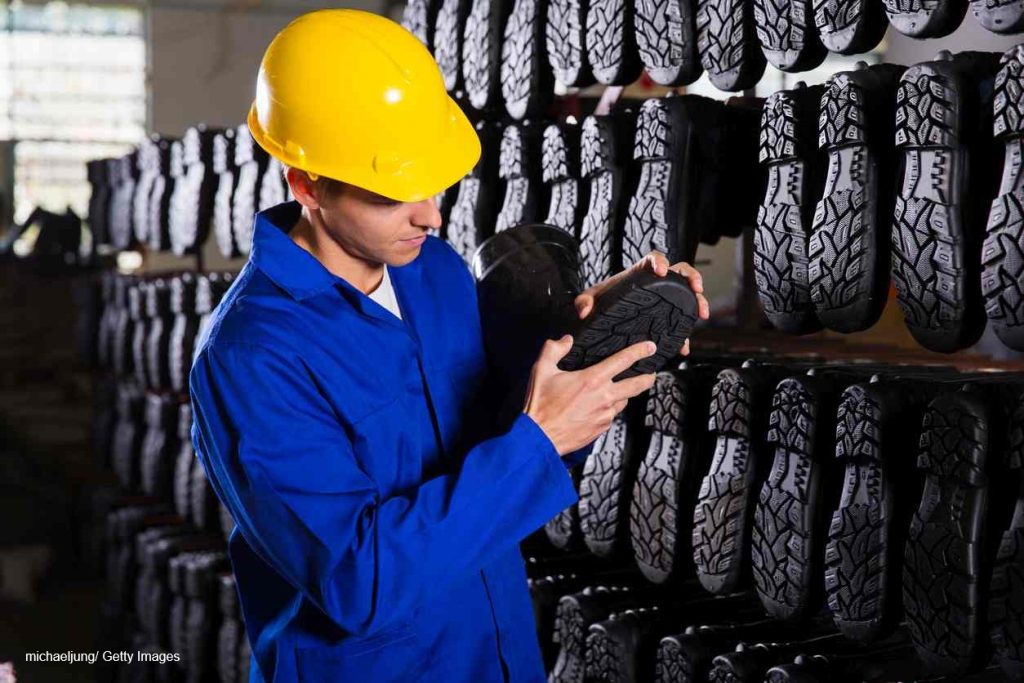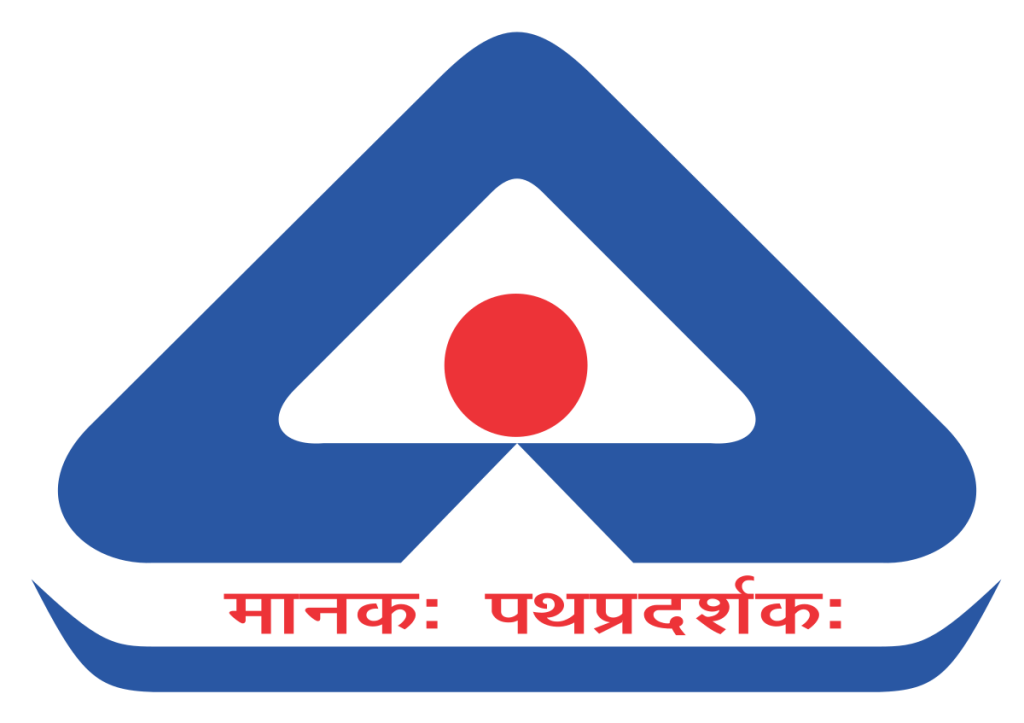FAQ Update and Extension Notice for Implementation of Footwear Products
The Bureau of Indian Standards has published an updated version of the FAQ on the Quality Control Order (QCO) for Footwear products for 2024. Many footwear products usually require BIS certification to be approved for import and use in India.

The FAQ contains a number of detailed clarifications on several questions, for example:
- Which are the footwear products for which the Government has issued Quality Control Orders?
- Do these QCOs apply only to finished footwear or footwear components/materials as well?
- Impact of recent Standard changes for certain footwear categories and more.
Feel free to contact us for information on the FAQ.
Furthermore, the Regulatory Authority of the Ministry of Commerce and Industry has announced a new effective date for the QCO 2024 for Footwear made from Leather and other Materials. The order will now be enforced starting August 1, 2024.
An overview of the relevant footwear products and their corresponding Indian Standards:
| Goods or articles | Indian Standard |
| Leather safety boots and shoes | IS 1989(Part-1): 1986 |
| Leather safety boots and shoes | IS 1989(Part-2): 1986 |
| Canvas Shoes Rubber Sole | IS 3735: 1996 |
| Canvas Boots Rubber Sole | IS 3736: 1995 |
| Safety Boots for Miners | IS 3976: 2018 |
| Leather safety footwear having direct moulded rubber sole | IS 11226: 1993 |
| Leather safety and protective footwear with direct moulded Polymeric sole | IS 14544: 2022 |
| Sports Footwear | IS 15844(Part-1): 2023 |
| Sports Footwear | IS 15844(Part-2): 2023 |
| Sports Footwear | IS 15844(Part 3): 2024 |
| High ankle tactical boots with PU - Rubber sole | IS 17012: 2018 |
| Anti-riot shoes | IS 17037: 2018 |
| Shoes for Services and for General Purpose | IS 17043 (Part-1): 2024 |
| Shoes for Services and for General Purpose | IS 17043 (Part-2): 2024 |
If you are interested in understanding what requirements are needed for your product to be imported into India, please do not hesitate to contact us by email or phone (Europe: +49-69-271 37 69 261, US: +1 773 654-2673). There is no cost or obligation for us to check for you. If a certification need is discovered we can provide a quotation to make sure that all your certification needs are covered.
If you have any questions you can also use our chat-window in the bottom right. (Please check your browser settings if you can’t see the window)
For more information about BIS certification, please refer to our free brochure “BIS Certification Made Easy“.
Extension of Product Coverage in Phases 3 and 4
Since April 1, 2024, TEC certification has become mandatory for a list of telecommunications and wireless products that fall under Phase 3 and Phase 4. This is an extension of the original deadline of January 1, 2024, in order to provide further relieve to stakeholders. Telecom equipment generally requires TEC certification to be approved for import and distribution in India.

Overview of product falling under Phase-3 and Phase-4
| Phase-3 | Phase-4 |
| Base Station for Cellular Network | SIM |
| Repeater for Cellular Network | HF Radio |
| Smart Electricity Meter | Mobile Radio Trunking System |
| VHF UHF Radio System Equipment | |
| PTP PMP Microwave Fixed Radio System | |
| LAN Switch | |
| Router | |
| IP Security Equipment | |
| Satellite Communication Equipment |
Additionally, the period for accepting ILAC test reports from non-border sharing countries for certain technical parameters of 8 specific products (see table below) had been prolonged by three months, from December 31, 2023, to March 31, 2024.
Overview of Phase-3 and Phase-4 products, with deadline 31st March 2024:
| Phase-3 | Phase-4 |
| Base Station for Cellular Network | SIM |
| Repeater for Cellular Network | HF Radio |
| Compact Cellular Network | VHF UHF Radio System Equipment |
| Radio Broadcast Receiver RBR | |
| Satellite Communication Equipment |
It’s also noted that the validity of these ILAC test reports will last up to two years from their submission date.
The TEC certification has been mandatory since April 2019. Every year the Telecommunication Engineering Center (TEC) expands the certification catalog and adds more telecom products. See the list of TEC standards here.
If you are interested in understanding what requirements are needed for your product to be imported into India, please do not hesitate to contact us by email or phone (Europe: +49-69-271 37 69 261, US: +1 773 654-2673).
For more information about TEC certification, please refer to our free brochure “TEC Certification Made Easy“.
Designated Products reclassified into GCS and SCS Categories
The Telecommunications Engineering Centre (TEC) has updated its categorization for certain telecom products under the Mandatory Testing & Certification of Telecom Equipment (MTCTE) framework to streamline business processes. Effective January 1, 2024, various notified products will now be classified under either the Generalized Certificate Scheme (GCS) or the Simplified Certification Scheme (SCS). The newly defined GCS categories include a range of equipment such as cellular network base stations, including those for 5G, various radio systems (HF, VHF/UHF, mobile radio trunking), and satellite communication equipment among others. Telecommunication products usually require TEC certification to be approved for import and sale on the Indian market.

Additionally, 49 other product categories have been shifted to the SCS category. For applications processed under MTCTE, only administrative fees will apply regardless of whether the product falls under GCS or SCS. The procedures and additional terms for submitting applications remain the same.
The TEC certification has been mandatory since April 2019. Every year the Telecommunication Engineering Center (TEC) expands the certification catalog and adds more telecom products. See the list of TEC standards here.
If you are interested in understanding what requirements are needed for your product to be imported into India, please do not hesitate to contact us by email or phone (Europe: +49-69-271 37 69 261, US: +1 773 654-2673).
For more information about TEC certification, please refer to our free brochure “TEC Certification Made Easy“.
BIS Stakeholders Consultation Meeting on Implementation of Parallel Testing
In January 2024, the Bureau of Indian Standards (BIS) officially transitioned its parallel testing process from a pilot project to a permanent feature within the BIS-CRS certification scheme. This decision came after a stakeholder consultation involving industry representatives and the Ministry of Electronics and Information Technology (MEITY). Parallel testing, initially introduced in January 2023 for mobile phones, allows critical components and host products to be tested simultaneously at laboratories, although their registration still follows a sequential process.

Despite the scheme’s initial six-month duration witnessing limited industry participation, BIS extended the pilot for an additional six months and included new product categories such as wireless headphones/earphones and laptops/notebooks/tablets. By December 2023, the industry feedback suggested strong support for making parallel testing a permanent option, emphasizing the need for predictability in planning product launches. Laboratories also indicated their readiness to implement parallel testing across all product categories without any challenges.
Key points from the discussions included:
- The initial phases of the pilot saw low application rates from industry participants.
- Industry stakeholders are in favor of permanent implementation of parallel testing for better planning of product launches.
- Laboratories are well-prepared and supportive of extending parallel testing to all products.
The new policy stipulates that parallel testing is optional, allowing manufacturers to choose this method while applying for BIS certification. However, manufacturers are responsible for all risks and costs involved if the certification application is ultimately rejected or not processed. Upon successful registration, manufacturers can expect immediate updates to their Conformity Certificate Lists (CCL).
If you are interested in understanding what requirements are needed for your product to be imported into India, please do not hesitate to contact us by email or phone (Europe: +49-69-271 37 69 261, US: +1 773 654-2673). There is no cost or obligation for us to check for you. If a certification need is discovered we can provide a quotation to make sure that all your certification needs are covered.
If you have any questions you can also use our chat-window in the bottom right. (Please check your browser settings if you can’t see the window)
For more information about BIS certification, please refer to our free brochure “BIS Certification Made Easy“.
BIS Certification for Copper Products
The Indian Ministry of Mines, together with the Department for Promotion of Industry and Internal Trade (DPIIT), has recently mandated BIS ISI Certification for copper products through a new quality control order (QCO). This directive aligns with efforts to ensure that copper products meet the stringent safety and quality standards outlined in the applicable Indian standards.

List of the relevant products:
- Copper Wire Rods for Electrical Applications
- Copper Rods and Bars for Electrical Purposes
- Copper strip for electrical purposes
- Copper rods and bars for general engineering purposes
- Solid-drawn copper and copper alloy tubes for condensers and heat exchangers
- Solid-drawn copper tubes for general engineering purposes
- Copper Tubes for plumbing- Specification
- Wrought Copper Tubes for Refrigeration and Air Conditioning Purposes
- Copper wires for general engineering purposes
This QCO will take effect from 19th October 2024. The rollout date for small enterprises is 19th January 2025, for micro enterprises 19th April 2025. It specifically targets the enhancement of the quality of copper products. The initiative not only aims to elevate product standards but also seeks to foster trust between industries and consumers. By setting a clear framework for compliance, the QCO serves as a crucial tool in reinforcing the integrity of copper products circulating in the Indian market.
Manufacturers of copper products must secure the BIS License in accordance with the stipulations of the QCO prior to its effective date. This move underscores the government’s commitment to consumer safety and the promotion of high industry standards. The regulation is poised to have significant implications for manufacturing processes, compliance strategies, and market dynamics within the copper industry.
If you are interested in understanding what requirements are needed for your product to be imported into India, please do not hesitate to contact us by email or phone (Europe: +49-69-271 37 69 261, US: +1 773 654-2673). There is no cost or obligation for us to check for you. If a certification need is discovered we can provide a quotation to make sure that all your certification needs are covered.
If you have any questions you can also use our chat-window in the bottom right. (Please check your browser settings if you can’t see the window)
For more information about BIS certification, please refer to our free brochure “BIS Certification Made Easy“.




